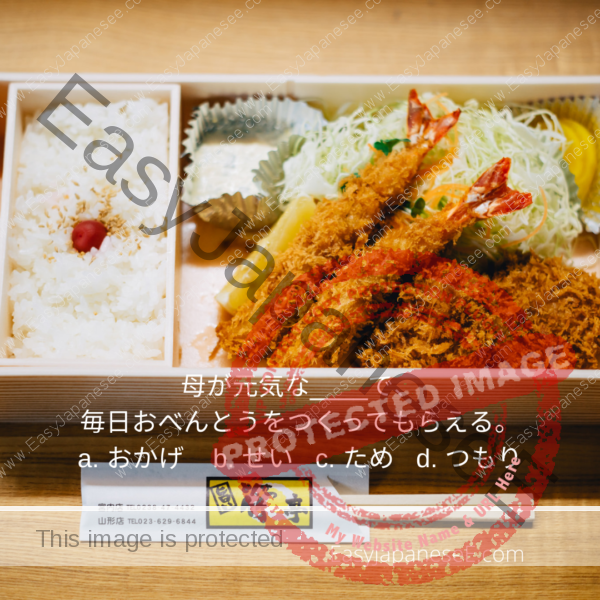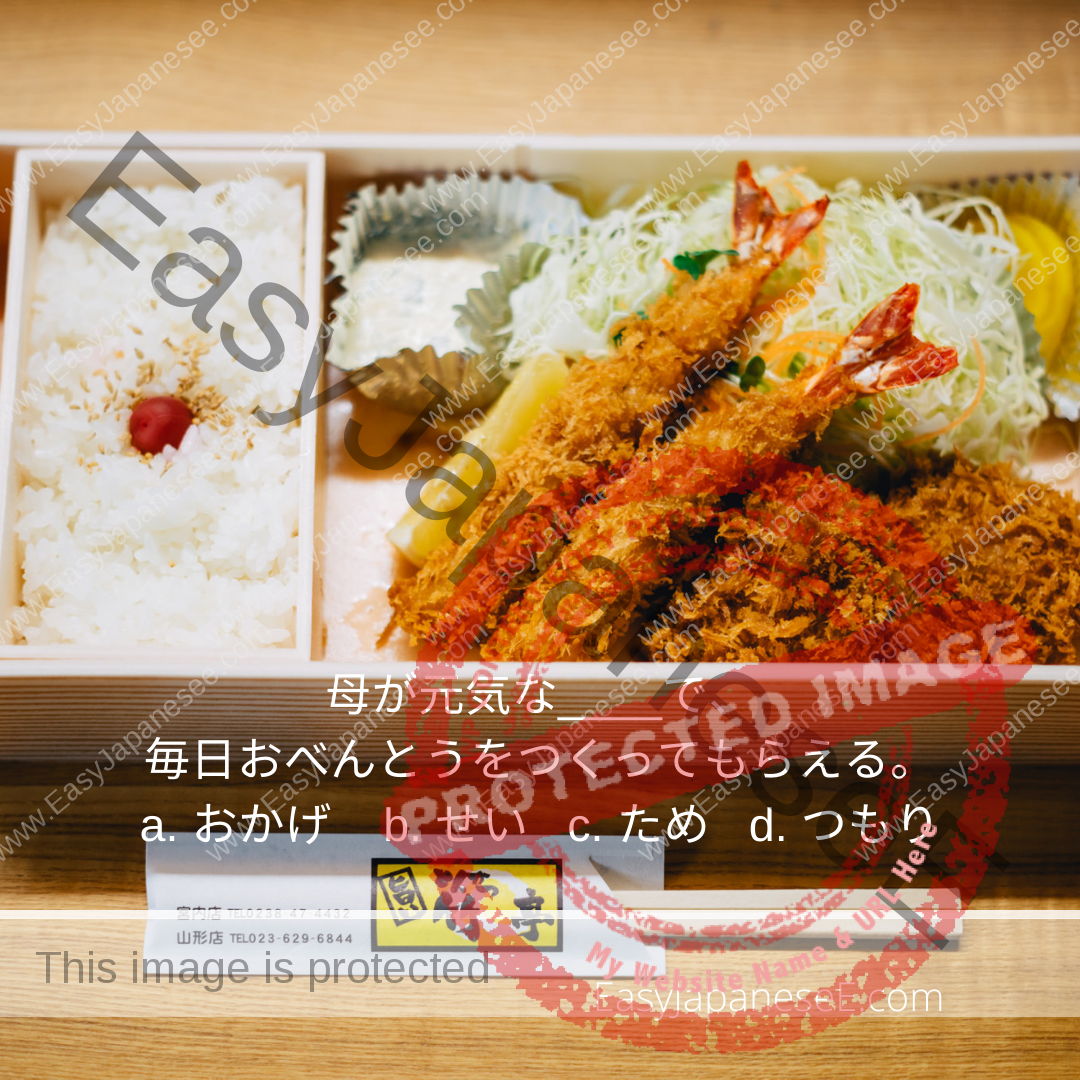
Today’s Grammar Point
~おかげで = thanks to ~
This is usually used to state the cause of a desired result and it emphasizes your appreciation for it. However, it can be used sarcastically.
If we want to state an objective reason/cause for a result, we use ~から or ~ので.
If we feel resentful about the cause/influence, it is usually expressed with ~せいで.
You can end the sentence with ~おかげです/おかげだ as well.
Connection
- [plain form verb] + おかげで
- [いadjective] + おかげで
- [なadjective] + な/だったおかげで
- [noun] +の/だったおかげで
Examples of appreciation
- 父が学費を出してくれるおかげで、ぼくは大学に行ける。
Thanks to my father paying the tuition, I can go to university. - この本を読んだおかげで、歴史の勉強が楽しくなった。
Thanks to having read this book, studying history has become fun. - 勉強が楽しいおかげで、成績がどんどん上がっていく。
As I find studying fun, my results are getting better and better. - テストがやさしかったおかげで、いい点がとれた。
Thanks to an easy test, I got good marks. - 母が元気なおかげで、毎日おべんとうをつくってもらえる。(today’s question sentence)
Thanks to my mum being healthy, I get her to prepare my lunch box every day. - きのうは店が暇だったおかげで、キッチンの掃除ができた。
Because the shop wasn’t busy yesterday, I was able to clean the kitchen. - 先生のおかげで、大学を卒業できます。
Thanks to the teacher, I can graduate from the university. - 祖母がスペイン人だったおかげで、ぼくはスペイン語がわかります。(more appreciative)
≒祖母がスペイン人だったから、ぼくはスペイン語がわかります。(more objective)
Because my grandmother was from Spain, I can understand Spanish. - 大学を卒業できたのは先生のおかげです。
It was thanks to my teacher that I could graduate from university./ (to your teacher) It was because of you that I could graduate from university. Thank you. - きのういい成績が出せたのは、よく眠れたおかげだ。
The reason why I could get a good result yesterday is because I could sleep well (the night before).
Examples of Sarcasm
- あいつのミスのおかげで、昨日は残業させられた。
Thanks to his mistakes, I was made to work overtime. - 赤ん坊が泣いたおかげで、昨夜は全然眠れなかった。
Thanks to the baby crying, I couldn’t sleep at all last night.
The answer to Today’s question
The correct answer is a. おかげ.
b. せい does not go with the ending もらえる which indicates your appreciation.
c. ため does not need で.
d. つもり means “intention” and it does not suit this context.


One Reply to “おかげで/おかげだ”